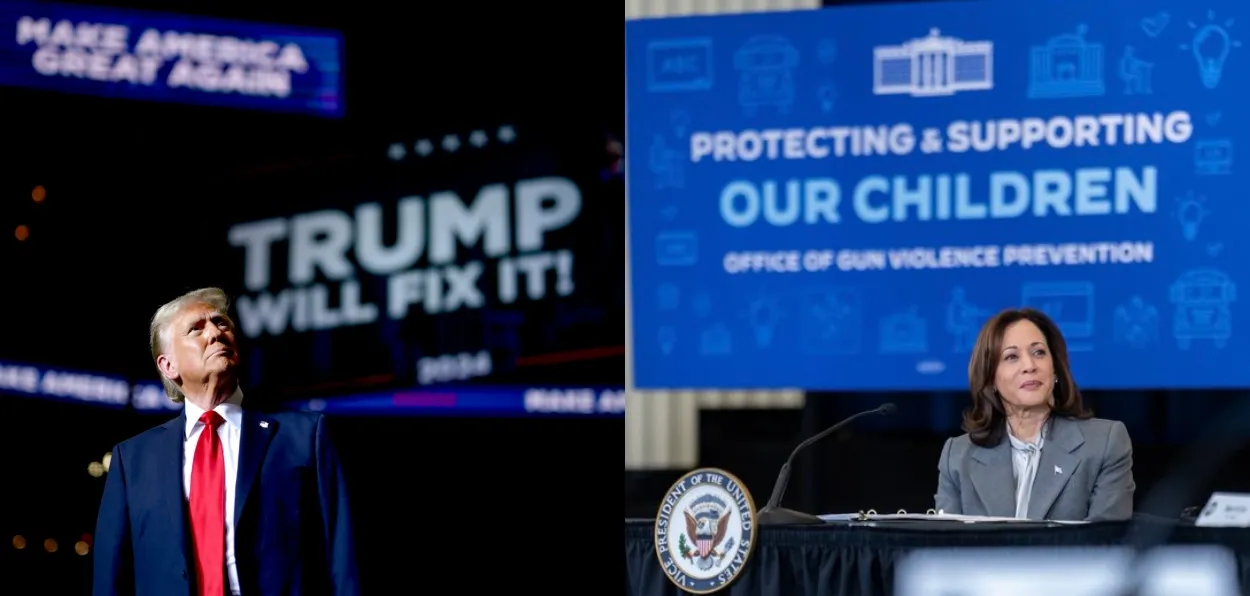
 Sushma Ramachandran
Sushma Ramachandran
The world’s biggest economy is set to have a change of guard in the coming days. Elections in the United States are being watched avidly by most countries including India as the outcome could impact bilateral ties. Both the Republican and Democratic candidates - Donald Trump and Kamala Harris - have tried to show their warmth towards India during the campaign. The latest salvo was fired by Trump who has assured the Indian Diaspora that the rights of Hindus around the world would be protected if he wins.
This is in the context of reports that Hindus are being persecuted in Bangladesh. On the other hand, Kamala Harris has been trying to woo the same community by highlighting the stellar role played by her immigrant mother in her upbringing.
The enthusiasm for winning over this relatively small ethnic group is largely because polls are showing the candidates are virtually neck and neck in terms of popularity. The winning margin is thus likely to be wafer-thin so persons of Indian origin could play a decisive role. It also has to be recognized that the community wields more heft than its actual numbers. This is largely due to its affluence as it has a median income higher than other immigrant groups and better education levels. Besides, the fact that persons of Indian origin like Satya Nadella, Sunder Pichai, and Shantanu Narayan head tech giants like Microsoft, Alphabet, and Adobe is not lost on either of the candidates.
As far as strategic issues are concerned, it is likely that the relationship will remain on an even keel given the extent to which the two countries have moved closer together in many ways. By joining the QUAD, India has aligned itself in some sense with a Western group that includes the U.S. and Australia in the Indo-Pacific region. The warmth exhibited during the Trump era towards PM Narendra Modi has continued during the Biden administration. The controversy over the possibility of an Indian being involved in a conspiracy to attack Khalistani leader Gurpatwant Singh Pannun has also been dealt with in a low-key manner. The official U.S. spokesperson merely noted that the administration was satisfied with India's cooperation.
However, economic and trade ties may face even greater stress as a new president takes charge. This includes aspects like a free trade agreement. India has been keen on and which the US has shown little interest The issue was mentioned during the Trump administration but no action was taken at the time. Subsequently, even the Biden administration was not responsive. India also expects that the enhanced tariffs levied by Trump on steel and aluminum exports from this country will be reduced when Biden takes over. But these have remained in place, much to the dismay of the Commerce Ministry here.
In his earlier tenure as president, Trump had also ended India’s access to the Generalised System of Preferences (GSP) which gave preferential market access. This was because reciprocal facilities had not been provided to U.S. goods. There has been no rollback on this facility as well by the Biden administration. Given the fact that Harris has indicated there will not be much change from existing policies in case she wins the elections, it seems like the status quo will continue.
On future bilateral trade policies, Donald Trump has taken a much harsher position on tariffs related to India and the rest of the world. He has declared that a flat ten percent levy would be imposed on all imports with Chinese goods specifically being slapped with a 60 percent duty. As for India, despite the avowed bonhomie with Prime Minister Modi, he has called India “a very big tariff abuser”. This is in line with pronouncements during his earlier administration when he referenced the high import tariffs on Harley-Davidson motorcycles to highlight the skewed trade relationship.
However, in other areas as the collaboration for setting up a national security semiconductor project programmes are likely to continue irrespective of the change at the top. In addition, the U.S. has supplied high-technology defence equipment to this country such as the latest sale of military drones that are expected to give an edge to the armed forces. A roadmap has already been laid down for defence-industrial cooperation envisaging the manufacture of jet engines and munitions. Neither Trump nor Harris are expected to disturb these arrangements, in light of the concerns over the potential expansionism of China in the Indo-Pacific region.
In this backdrop, it seems evident that bilateral trade ties will continue to face challenges whether Trump or Harris are the winners in the polls With the former, however, there may be fears that tariff barriers to a huge export market will rise even further. Given that India has a trade surplus, it is likely that even a possible Harris administration would equally raise serious concerns over the lack of market access.
ALSO READ: Baton passes on at Tatas amid rise of Indian businesses with high revenue, ethics
On the plus side, collaboration in high technology areas like chips and defense equipment is likely to continue expanding under either a Republican or Democratic incumbent. It is the area of trade that is going to continue to be an irritant in the bilateral relationship even though the two countries have recently managed to resolve all previous disputes at the World Trade Organisation. Thus whichever candidate enters the White House, it will make little material difference to India- U.S. economic ties.
Author is a Delhi-based senior journalist and columnist
